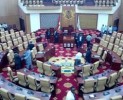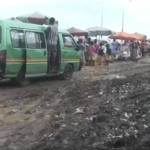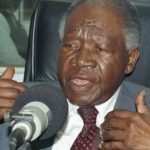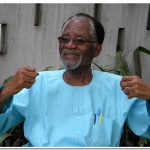Run, Samia, Run!
Posted by By Akogun Akomolafe at 6 January, at 07 : 00 AM Print
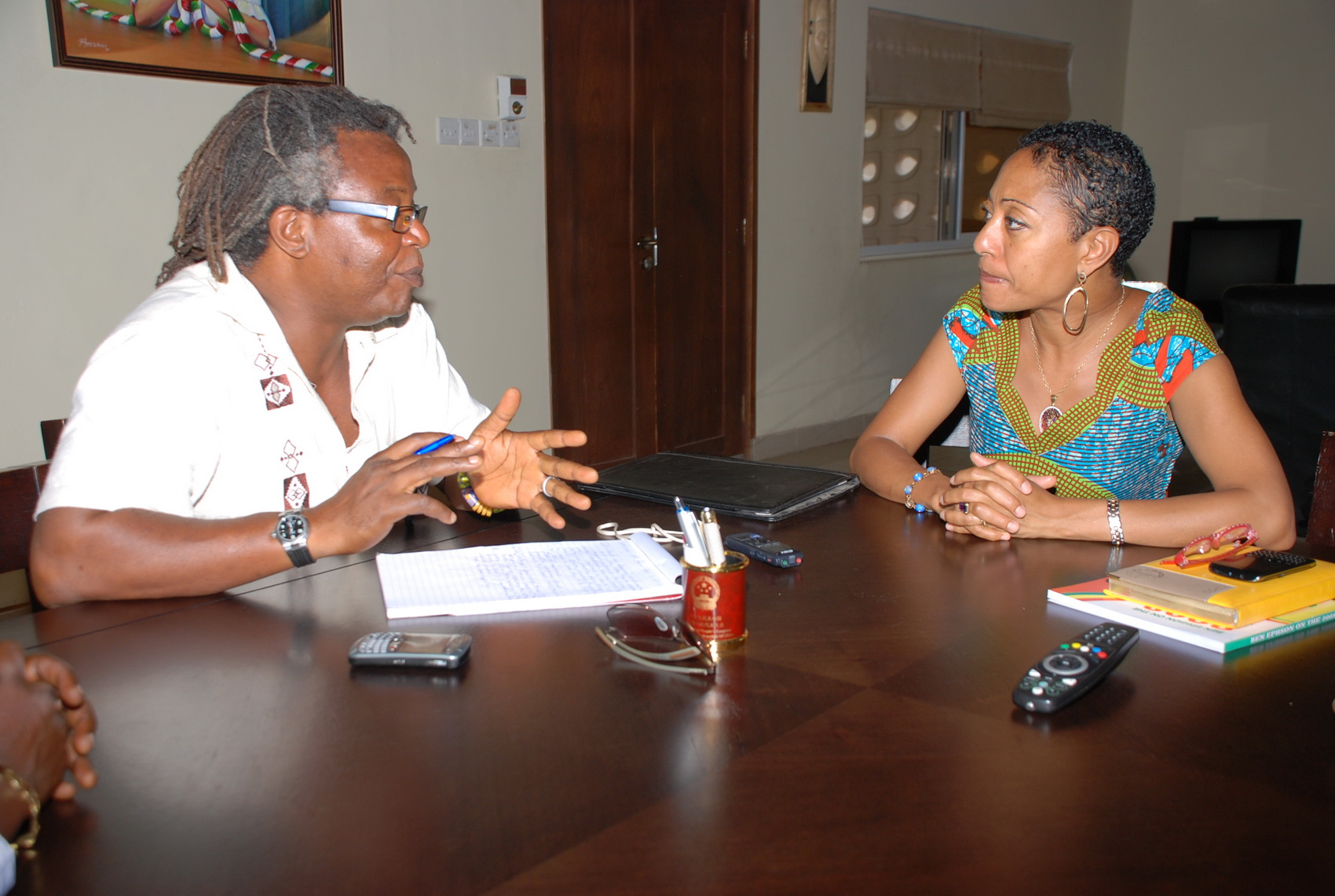
Warning: count(): Parameter must be an array or an object that implements Countable in /home/alaye/public_html/wp-content/themes/Video/single_blog.php on line 56
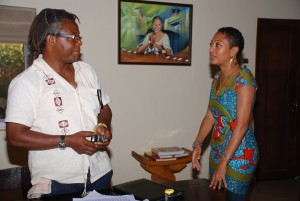
In its second decade of existence, this column has never endorsed a politician. We will make an exception and declare our whole-hearted support for Samia Nkrumah in her quest to become the Chairwoman of the Convention of People Party (CPP), the party founded by her incomparable and illustrious dad, Osagyefo Dr. Kwame Nkrumah.
It was indeed good news when the daughter of Africa’s favorite son decided to take up the mantle of the leadership of the CPP.
Over the years, those that charged themselves with managing the affairs of the CPP have proven over and over that they are inept. It is very difficult to be charitable to those who continue to lead a once dynamic party like the CPP to obvious oblivion. What is the point of assuming leadership position when one is incapable of offering any fresh insights into how to breathe life into the organisation?
Even the most vitriol of Nkrumah’s critic attest to his organizational abilities; he was simply a born leader of men and an organizer par excellence. And whatever his detractors say, his achievements are so solid that no amount of vile propaganda has been able to dent his image.
Like the Pharaohs of Ancient Egypt, Nkrumah engraved his name in the sand of history. His monumental work and achievement is the best answer to those that like to pick issue with his style of governance.
No government in Ghana has been able to match the solid achievements registered by the Nkrumah’s regime. Each and every time we switch our light on in Ghana we have to give praise that Nkrumah had the vision to build the Akosombo Dam when he did. The Tema Motorway he built about fifty years ago still remain the best highway in our land.
And tried as his enemies did, no one has been able to tar the Osagyefo with accusation of personal corruption.
Like any human, he had his fault, but the lots of Ghana and Africa would certainly have been better were local agents of imperialism not to have conspired with their external mentors to overthrow his government.
Today, Ghana is counting its loss. And the rest of Africa has joined in the great lamentation. It is only today we are wising up to the great calamity wrought on our continent by the overthrow of the leading light of our people’s quest for liberation.
And today, the imperialists and their lackeys are deriding us as under-achievers. They are pointing South Korea, Malaysia and Singapore to us as example of how far behind we are without telling about the role they played in truncating our march for economic development. And their internal quangos lacked the courage to ask whether Nkrumah was more dictatorial than the leaders that led the Asian countries to economic prosperity.
The infernal imperialists failed to tell us that Nkrumah laid the foundation for the industrialization that would have helped us in achieving economic prosperity, and that they played active role in thwarting his efforts.
Whilst the elite were cavorting with the colonialists to postpone our independence, Nkrumah was, within few years of returning from abroad, able to build a most formidable political party that was able to rest power from the perfidious colonialists with the shortest time possible.
Unlike the elite which held the ordinary people in utter contempt, Dr. Nkrumah built a party that drew its power from the grassroots. His base was the ordinary people – farmers, artisans, mason, carpenters, truck-pushers and the rest of the hoi-poloi the elitist politicians refused to touch even with a long poll. And unlike the elite, the Osagyefo was willing and did go jail for confronting the colonialists.
Despite the machinations of the colonialists and their local agents, the CPP consistently won all the elections until the local agents of imperialism collaborated with the CIA to overthrow the government on that day of infamy in 1966.
Unlike most of contemporaries that studied in the West, Nkrumah recognised that Africa, in order to make headway in the world, had to blaze a different trail from the one charted for us by the imperialists. He recognised the foolishness of trying to catch up with Europe.
He was impatient, all right, but it was an impatience borne out by the recognition that Africa had a long catch-up to do. In his sojourn abroad, Nkrumah saw first-hand how far ahead the Imperial Metropolitan powers were vis-à-vis his beloved continent. He correctly analysed that the prosperity of the imperialists is possible only by our colonization and oppression. It is the same impatience that any conscious African who had lived in Europe for any stretch of time will exhibit today.
Perhaps the most profound difference between Nkrumah and his contemporaries was the recognition that Africa cannot depend on the imperial powers to redeem it from the morass of backwardness and economic under-development. This came about from the simple diagnoses that it’d be wrong to depend on your oppressor for your freedom. Oppressors and the oppressed want different things; they aspire to different heights. The aim of any oppression is to dominate and the oppressed want only one thing: the end of his oppression.
Nkrumah recognised that Africa must break away from the yoke of colonialism as fast as possible and for this he became a marked man. For daring to challenge the imperialists head-on, his days were numbered. He died a broken man in exile. His enemies, internal and their external sponsors jubilated at his demise.
Their victory was however Pyrrhic because in death Nkrumah has achieved what he was unable to achieve in his lifetime: the adoration of the vast majority of Africans who voted him the African Man of the Millennium in a poll conducted by the BBC.
Today, a grateful nation and continent celebrate his birthday as a holiday. No man or woman could ask for more.
Sadly, one of Nkrumah’s legacies did not last long. His once formidable political machine, the CPP, is not even up to a shell of its old self. Rusticated until the third republic, the CPP has never recover its old allure.
And sadly the party of Kwame Nkrumah party has found it impossible to make itself relevant in contemporary Ghana’s political configurations.
Internal bickering has conspired with big personal egos to balkanize Nkrumah’s once formidable party to a shell of its old self – its percentage of the vote has not been able to rise beyond single digit point.
It could be argued that Nkrumah’s larger-than-life stature made it impossible for any man or woman to fill his shoes. It could also be argued that the corruption of some of his Ministers really put people off. What could not be argued away is that no Ghanaian could pull and sway crowds the way Nkrumah did. JJ Rawlings also relates well with the ordinary, but he comes a distant second to the Osagyefo.
Years of rustication by both civilian and military governments are not enough to explain the sorry state in which the CPP is currently languishing. Life under colonialism was not a bed of roses, yet the Osagyefo was able to galvanize the people.
Today, luckily the land of Nkrumah brandishes impeccable democratic credentials. With five peaceful elections under its belt, and with eighteen years of uninterrupted civilian rule, Ghana is a toast of the world and the envy of nations in a region where the art of electing governments remains a do-or-die affair.
Although the pretension is that Ghana is a multi-party democracy, the reality is that the country is effectively a two-party state. It could be argued that most ‘matured’ democracies are also effectively two-party states.
The National Democratic Congress (NDC) and the New National Party (NPP) had, between them, share the ruling of the country since the inception of the fourth republic.
The best any other party had been able to do was win a parliamentary seat or two. The chances of any other political party apart from the two gaining the reins of power is as remote as it could be imagined, at least, for the foreseeable future.
What this means is that Ghanaians have been ruled by this two party and they should by now know both parties adequately well. They have eighteen years experience to guide them in their assessments of the two parties.
It could be due to the global trend, but it is clear that very little differentiate the NDC from the NPP, at least ideologically. Both parties claim adherence to social democracy with the NPP trumpeting that it is a ‘Property owning democracy.’
This lack of ideological differentiation could be responsible for the ease with which people crossed carpets in the political realm. Since neither the NDC nor the NPP articulate any radical political or ideological philosophy, Ghanaians are offered only one side of the same coin, blurred only by personality coloration.
The absence of any ideological thrust between the parties is also responsible for the emerging trend of politics of insults and rancor. Since there are no essential differences between the NDC and the NPP, politics has been reduced to the issues of personality with its attendant character assassinations.
This lack of radical ideological orientationdifferentiation among the parties could be responsible for the total lack orientation and direction at the national level. No one knows where Ghana is going or what the country stands for on any given geo-strategic issue.
No one was ever in doubt where Nkrumah stood on any issue. It is said that a nation’s foreign policy is a reflection of its internal policy. Nkrumah’s dynamic internal programmes were matched only by his vigorous foreign policy thrusts that gave Ghana a voice that is totally out of proportion to its size – geographic as well as economic – in international forums.
Under Nkrumah, Ghana was synonymous with Africa and many African students in Europe and the USA, especially Nigerians, were not always amused when people confused their countries for much smaller Ghana. To demonstrate that he was his own man and not under anyone’s control, Nkrumah very wisely pitched tents with the Non-Aligned Movement where he was able to articulate his position as well as that of his beloved continent.
Sadly, the demise of Nkrumah appears to be the demise of Ghana’s foreign policy. Today, one will be hard-pressed to know where Ghana stood on any given issue.
Even in neighboring Cote d’Ivoire where the imperialists are lining up and ganging up to divvy the country, Ghana voice is muted.
If our leaders are quiet on a grave issue such as the unfolding drama in our western neighbor, when should we then expect them to raise their voice? It shows gross disrespect for us when the imperialists think nothing of fishing in our backyard.
The total lack of respect the imperialists are showing us in la Cote d’Ivoire would have been impossible under Nkrumah. He would have told them off. He told them to get off in far away Congo and constantly told them in no uncertain terms what he thought of their meddling in African affairs.
On the home front, our nation also pitifully lacks any clear-cut and well articulated policy direction in all critical areas of national life.
What, for example, is our policy on education or culture? Of course, we have Ministers of states with state officials going through the motions. But by and large, our system of governance is all a hit-or-miss approach.
It is this lack of ideological thrust that makes it difficult to analyse where our leaders intend to take us. It also makes it difficult to make informed judgment about how to choose between the two parties; hence the elevation of personality clash as the most important criteria in the political terrain.
Instead of engaging in informed and educated discussion on issues, we are reduced to the spectacle of our politicians flinging insults like kindergarten pupils. Occasionally, fisticuffs are substituted for informed, rational arguments.
And sadly, the CPP, Nkrumah’s political party is so rife with internal bickering that it has been unable to offer clear cut alternative for us.
The party which once ruled all that it surveyed has not been able to climb above the 6% mark in electoral gains. It is sadder still that the bickering is accentuated not by ideological clash but by personality or ego disagreements.
The division within the CPP has gone for far too long that party stalwarts have lost all hope that the squabbling personalities will bury their hatchets anytime soon to rejuvenate the party they love so much.
Countless meetings have been held between the CPP and the PNC and this has resulted in innumerable communiqués that were largely observed in the breach.
That the most committed cadres of the party are aging and are not being replenish with fresh blood does not appear to concern the party’s elite which, appears hell bent on self-destruction.
Radical situation calls for radical solution and it is in this vein that one has to welcome the decision of Samia Nkrumah to throw her hat into the ring to wrestle her father’s party from the clutches of self-seeking, self-serving apparachitiks, which have shown that they lack the commitment to move the party’s agenda forward.
A party leadership that has watched over the years how the fortunes of the party have eroded cannot be said to be a responsible leadership. CPP foot-soldiers have watched helplessly as the NDC poached their members and there certainly must be a limit to the patience of party members.
That nature abhors vacuum is a lesson that seem to be loss to the leadership of the parties that claim allegiance to Nkrumahism. How long do they honestly expect the members to continue to support their directionless and visionless leadership?
The Nkrumah’s era can rightly be described as the only Golden era Ghana had in recent history. The nation clearly needs a vigorous leadership that will allow her to regain her former luster. We need a radical departure from the moribund leadership of the past forty-something years.
We need direction in education, in health, in industrialization, in culture, in health, in foreign affairs. We need someone to articulate the yearnings of the ordinary Africans. We need someone to speak up for Africa.
There is no denying the fact that all the gains Africa’s founding fathers garnered for us have been withered away by the reactionary leaders that succeeded them. A time there was when we had factories making our cloth and shoes; today our womenfolk take delight in buying used panties and bras. In years past, we had workers brigades earning good pay from honest toil; today the energies of our youth is being sapped from selling bric-a-bracs from Asia. Fifty years ago, our leaders had ambition to build for us integrated industries that will utilize our mineral resources to make those things that will make our lives worth living; today, the imperialists control the commanding heights of our economy. Today, our leaders gleefully declared us Heavily Indebted and Poor Country and they, without shame, splattered ‘Donor’s names on toilets! Fifty years ago, we were a proud people, respected across the world; today, we have become beggar nation and the scorn of the world.
No honest commentator can say that we are better today than we were fifty years ago! And that is the greatest indictment against the reactionary elite mis-ruling us. They have not been able to articulate any vision for us and our dear republic.
I have no crystal ball to discern how Samia Nkrumah would fare but she has, over the years, show a commitment and fidelity to her father’s ideas and ideals that’s unmatched by any of the current crop of leadership in her party or even in the country.
Unlike some of her siblings who had find it necessary to join other political parties; Samia has remain in her father’s party where she’s currently its only MP.
She has proven to be a good disciple of her father and has taken the trouble to understudy the great man. The CPP needs a figure that can really rouse and rally the troop and she remains the brightest light in the party’s firmament. There is simply no one in the CPP or even in our dear land with her name recognition.
Our dear republic cannot continue politics as usual. The progressives are too scattered that they have no effective voice and are often dismissed by the reactionary elite as busy-bodies and ineffectual noise-makers. It is time the hard-working comrades coalesce around a central who has the name to unite them.
Ghana, nay Africa, needs a progressive vanguard to lead her in a challenge to the triumphalistic imperialists trampling all of us down. We need selfless leaders who see politics as a call to duty and not an avenue to fight for car loans and ex gratia, the two items that remain the only thing that excite the current crop of professional politicians bestriding our political landscape. Above all, we need a breath of fresh air.
About the Author
Femi Akomolafe is a passionate Pan-Africanist. A columnist for the Accra-based Daily Dispatch newspaper and ModernGhana, and Correspondent for the New African magazine. Femi lives in both Europe and Africa, and writes regularly on Africa-related issues for various newspapers and magazines.
Femi was the producer of the FOCUS ON AFRICANS TV Interview programme for the MultiTV Station.
He is also the CEO of Alaye Dot Biz Limited Dot Biz, a Kasoa-based Multimedia organisation that specialises in Audio and Video Production. He loves to shoot and edit video documentaries.
His highly-acclaimed books (“Africa: Destroyed by the gods,” “Africa: It shall be well,” “18 African Fables & Moonlight Stories” and “Ghana: Basic Facts + More”) are now available for sales at the following bookshops/offices:
Freedom Bookshop, near Apollo Theatre, Accra.
The Daily Dispatch Office, Labone – Accra
WEB Dubois Pan-African Centre, Accra
Ghana Writers Association office, PAWA House, Roman Ridge, Accra.
African Kitchen in Amsterdam Bijlmer
Where to buy them online:
On Lulu Books:
18 African Fables & Moonlight Stories https://goo.gl/Skohtn
Ghana: Basic Facts + More: https://goo.gl/73ni99
Africa: Destroyed by the gods: https://goo.gl/HHmFfr
Africa: It shall be well: https://goo.gl/KIMcIm
Africa: it shall be well
on Kindle books: https://www.createspace.com/4820404
on Amazon books: http://goo.gl/QeFxbl
on Lulu Books: https://goo.gl/SQeoKD
Africa: Destroyed by the gods
on Kindle books: https://www.createspace.com/4811974
on Amazon books: http://goo.gl/1z97ND
on Lulu Books: http://goo.gl/KIMcIm
My Lulu Books page: http://www.lulu.com/spotlight/FemiAkomolafe
Get free promotional materials here:
- Africa: it shall be well: http://alaye.biz/africa-it-shall-be-well-introduction-in-pdf/
A FREE Chapter of ‘Africa: It shall be well’ could be downloaded here: http://alaye.biz/africa-it-shall-be-well-a-free-chapter/
- Africa: Destroyed by the gods (How religiosity destroyed Africa) http://alaye.biz/africa-destroyed-by-the-gods-introduction/
A FREE Chapter of ‘Africa: Destroyed by the gods’ could be downloaded here: http://alaye.biz/africa-destroyed-by-the-gods-free-chapter/
Contact Femi:
Femi’s Blog: www.alaye.biz/category/blog
Website: www.alaye.biz
Femi on Amazon https://www.amazon.com/author/femiakomolafe
Twitter: www.twitter.com/ekitiparapo
Facebook:https://www.facebook.com/alayeclearsound;
Gmail+: https://plus.google.com/112798710915807967908;
LinkedIn: www.linkedin.com/in/femiakomolafe
Email: fakomolafe@gmail.com
Kindly help me share the books’ links with your friends and, grin, please purchase your copies.
Comradely,
Femi Akomolafe

